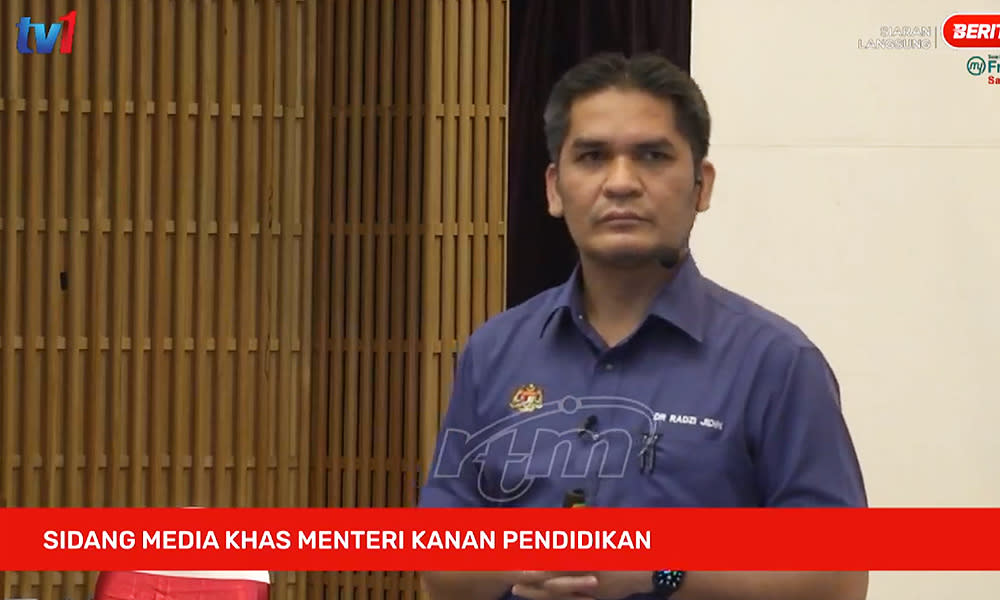Ministry abolishes UPSR in full, cancels PT3 for this year

The Ujian Penilaian Sekolah Rendah (UPSR) will be abolished from this year onwards.
This marks an end to the national Standard 6 examination after 33 years of its existence.
Education Minister Mohd Radzi Md Jidin (above) also announced today that the Pentaksiran Tingkatan Tiga (PT3) examination for Form 3 students has been cancelled for this year.
“The ministry has decided that for 2021, the PT3 examination will be cancelled like it was last year,” he said this afternoon at a press conference in Kuala Lumpur that was live-streamed.
Instead of PT3, secondary school students will be assessed based on their in-class performance, psychometry plus sports and co-curricular activities throughout this year.
Meanwhile, instead of UPSR, primary students will be assessed based on their performance in class.
“From 2021 onwards, UPSR will be abolished completely.
“Surely there will be those who ask how students will be assessed without the UPSR. We will strengthen classroom-based assessments beginning 2021,” he said.
In line with the abolishment of UPSR, the Pentaksiran Alternatif Sekolah Rendah (PASR) for Standard 6 special needs students has also been abolished from this year onwards.
“Special needs students will be assessed based on classroom-based assessments,” the minister added.
Entry into boarding schools
With the retirement of UPSR and PASR, Radzi explained that students who apply to secondary boarding schools will be assessed on three criteria - intellectual ability, soft skills and writing articulation skills.
As for Form 3 students hoping to enter a boarding school for their upper secondary education, they will also be assessed on the same three criteria.
The official term for this assessment is Pentaksiran Kemasukan Sekolah Khusus (PKSK).

Reasons for abolishment
Elaborating, the minister said the decision to abolish UPSR was made after consultations with more than 1,000 stakeholders nationwide including students, teachers, school principals, parents, unions and associations.
The consultations focused on comparing UPSR to how other countries assessed their primary school students.
According to Radzi, some teachers felt they had to finish the school syllabus as soon as possible to allow for UPSR preparations to begin.
Some also shared how they had to use the time allocated for non-examinable subjects to prepare students for the national examination.
Some parents, however, opined that they sent their children to tuition classes from Standard 1 just to prepare for UPSR.
Meanwhile, Radzi explained that the ministry cancelled this year’s PT3 examinations because the Covid-19 pandemic had affected teaching and learning.
Face-to-face learning had been cut short and this, he said, had jeopardised students’ ability to prepare for the examination.


